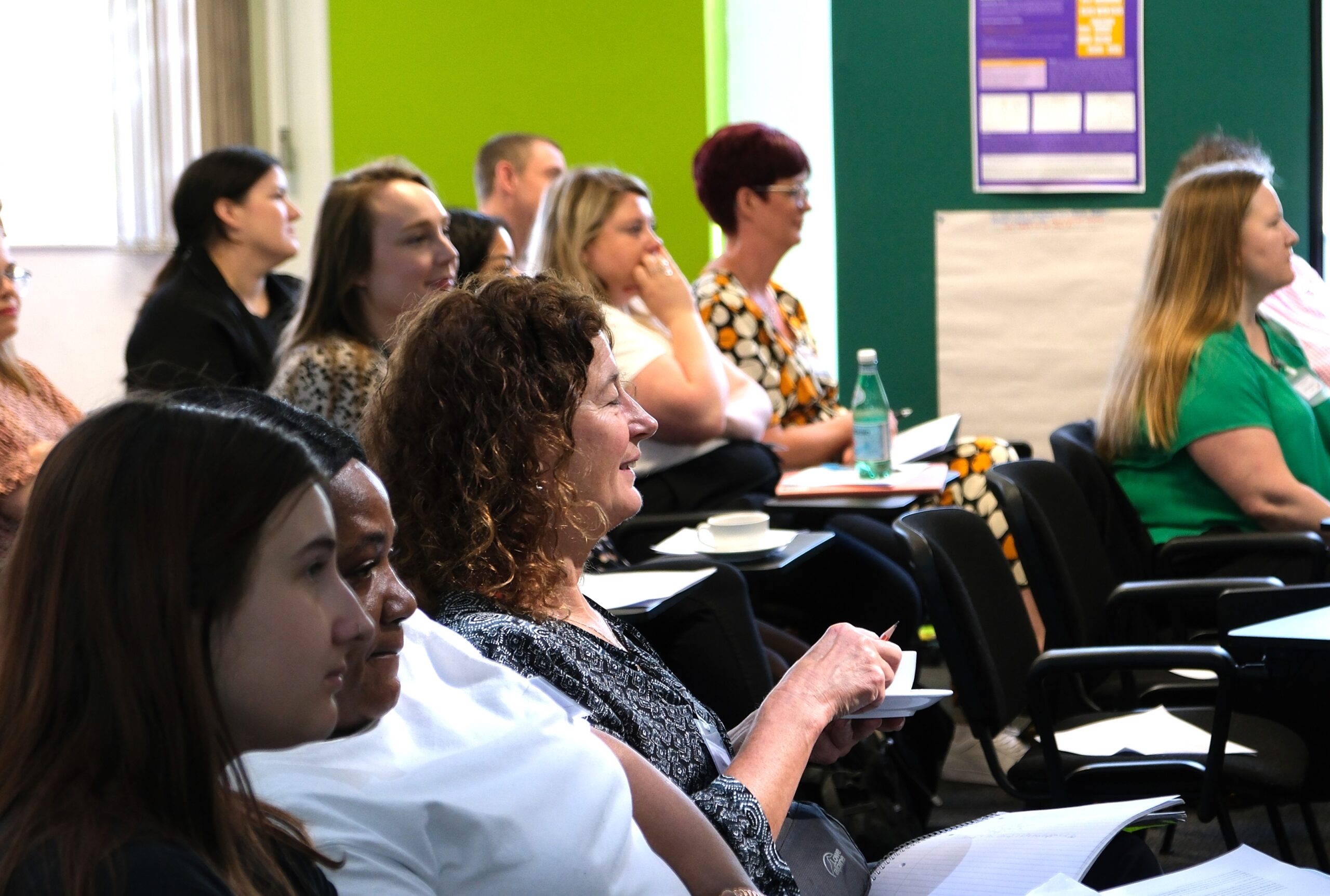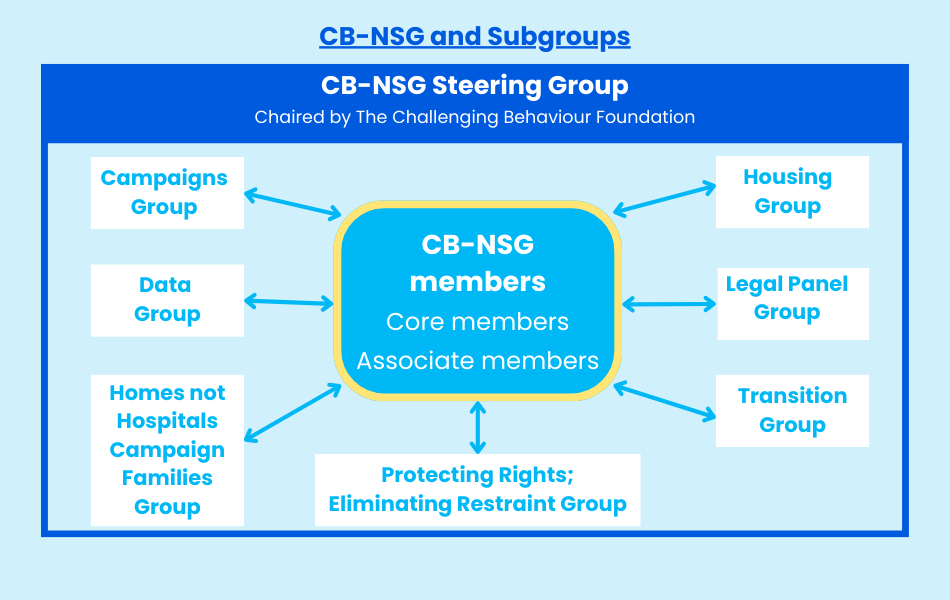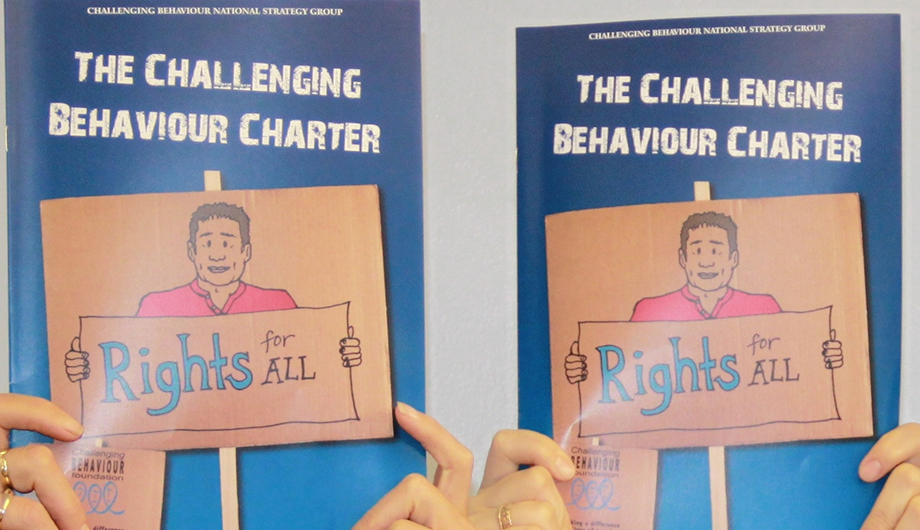
CB-NSG Update Paper
See here for the most recent CB-NSG update paper

The Challenging Behaviour Foundation formed the Challenging Behaviour - National Strategy Group to break down the barriers to enable children and adults to get the right support to have a good life. Find out more about the CB-NSG on this webpage!
The Challenging Behaviour – National Strategy Group (CB-NSG) is made up of a range of different experienced stakeholders working together, motivated to drive change forward to make a real difference to the lives of individuals with learning disabilities whose behaviour challenges.
The label ‘challenging behaviour’ can be misused and misunderstood. Instead of encouraging carers and professionals to find effective ways of understanding a person’s behaviour and its underlying causes, it is often used as a diagnostic label, leading to stigmatisation and exclusion. Children and adults whose behaviour challenges are often denied the right to live an ordinary life in their local community and can be placed in institutional settings far away from their homes and families.
With this in mind, the Challenging Behaviour Foundation (CBF) formed the CB-NSG. It is an action-focused group that works together, led by lived experience, to break down the barriers to enable children and adults to get the right support to have a good life.
The CB-NSG focuses on four key principles
Find information about becoming a CB–NSG member

The CB-NSG Steering Group strategically co-ordinate the activity and actions of the CB-NSG as a whole. Find out more about the CB-NSG Steering Group here.
CB-NSG members, along with other partners, have been working together to co-produce an action plan with actions that policy makers need to take to get support right for children, young people and adults with a learning disability, along with actions that CB-NSG members and other stakeholders are taking to support this. This work puts into practice the four key principles of the CB-NSG.
We need an action plan that will make a positive difference to the lives of children and adults with a learning disability and ensure that they get the right support, in the right place, at the right time. Be part of making it happen.
There is a wealth of evidence about how to support people with a learning disability whose behaviour challenges in the community. This page is for policy makers – setting out what needs to be done to get it right.
On this page, you can see the actions that CB-NSG members and other individuals are taking to ensure that children, young people and adults with a learning disability and behaviours that challenge can live good lives in their local community
This page outlines the importance of accessible, coordinated research, sets out how this can be used to underpin policy and practice, and calls for a national learning disability research strategy
There are several CB-NSG subgroups, which focus on specific areas of work.
Following the abuse uncovered at Winterbourne View in 2011, Mencap and the CBF invited families to come together to influence and inform the Transforming Care programme and campaign for the rights of people with learning disabilities to live in their communities and not be detained in mental health hospitals. The Campaign Families group now includes a wide range of families whose relatives are either detained, or have previously been detained, in mental health hospitals, and who want to campaign for the rights of their relatives and others with learning disabilities. The work of the Campaign Families group feeds into all areas of the CB-NSG and its sub-groups.
The Campaigns Group focuses on planning campaign strategies based on the key issues that impact people with learning disabilities whose behaviour challenges, and their families. This includes identifying how best to engage with and influence different audiences on these issues, including key policy makers and officials, practitioners, and members of the public. Campaign Group membership is reviewed regularly. The current Campaign Group membership includes CB-NSG members representing national learning disability and autism charities and independent CBF advisors with relevant experience and expertise.
The Data Group was formed due to concerns that data was not being adequately analysed and used to inform activities in the Transforming Care programme. Since then, the work of the group has expanded to also include other issues that impact people with a learning disability whose behaviour challenges outside the scope of the Transforming Care programme. The group analyses trends in data, provides data and analysis for use in policy and influencing work, and inputs into research.
The Housing Group was formed in 2021 in response to the growing recognition that the inability to access suitable housing was a significant issue for people with a learning disability whose behaviour challenges. In particular, housing issues can lead to people with learning disabilities being unnecessarily detained in hospitals, and are the biggest factor contributing to delayed discharges. The Housing Group works strategically to identify barriers to accessing suitable housing, and how these barriers can be addressed.
The Legal Panel is a subgroup of the CB-NSG, established in 2016, which aims to make better use of the legal framework for enabling families to get the right support for their relatives. The Legal Panel meets regularly and is comprised of representatives of a number of leading law firms alongside academics and charities. Members work together to improve outcomes for individuals with learning disabilities and/or autistic people and their families when engaging with the legal system.
The Transition Subgroup was established in July 2024 and is formed of family carers and professionals from charities, education, health, and social care. The group has identified issues faced by young people with learning disabilities in transitioning from children to adult services and co-produced the actions that are needed to ensure young people and their families experience a positive transition.
To find out more about any of the subgroups, or to express an interest in joining a subgroup, please email nationalstrategygroup@thecbf.org.uk and include the name of the subgroup in the email subject
We hold two national meetings a year. These meetings bring together people with a learning disability, family carers, and a wide range of professionals and organisations to take steps that drive forward change.
This meeting focused on the Mental Health Bill, looking at the reforms it will make to the Mental Health Act, the impact that these will have on people with a learning disability, their families, and the people/services that support them, and how to ensure that existing knowledge and best practice is used effectively to support the development of community services.
The next CB-NSG national meeting will be held in November 2025, and will focus on the intersection between social care and other parts of the system, like health and education, and how these can work together to support children, young people and adults with learning disabilities whose behaviour challenges.
See here for more information about previous CB-NSG meetings.

See here for the most recent CB-NSG update paper

Members of the CB-NSG have worked together to develop a Challenging Behaviour Charter.

Find out more about Core and Associate membership